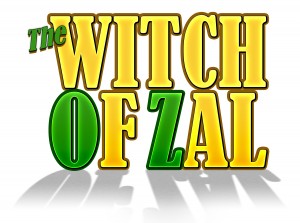After digging out of 20” of snow a week ago, this week found me hit with a marketing flurry. I have felt out of my depth since I hit the marketing side of publishing. Even though I’ve read a ton about it, when it came to actually making a plan the details overwhelmed and paralyzed me. So I’ve waded into the fray, rather than jumped.
This week started off with receiving my book trailer from Keith Strunk, who put it together for me. I had an unplanned public unveiling of the trailer at the Willow Grove Writers Coffeehouse, and people seemed to like it. I know I sure did!
So one thing I did this week was start a YouTube channel for myself. At the moment, however, the channel has no content, as I am having the dreaded “technical difficulties” loading the trailer to the channel.
The next marketing task that surfaced was an interview I did with Linda C. Wisniewski for the Bucks County Women’s Journal. My first interview as a professional author!
The interview of course kicked off a round of social media posts announcing it—Facebook, Twitter, Google+. I also hopped onto my website and added the link to my News & Events page—which I managed to do without breaking the Internet!
Finally, because I felt the need to have some focused marketing help, I joined BadRedHead Media’s 30-Day Book Marketing Challenge. The amazing Rachel Thompson sends us one tip and how-to every day for 30 days, and we then implement them. We are 3 days in, and so far I have spruced up my Twitter bio and header, pinned a tweet to my feed, and begun Following people with a more targeted focus.
So my week has been filled with flurries—marketing flurries. It’s good, though, because I feel a little more settled in my marketing mindset. I may never be a marketing powerhouse, but I am moving forward—and that’s what counts.
How about you? Did you dive in the deep end with marketing, or wade in hesitantly?


Considering a Social Media Break
First, Happy Valentine’s Day! Although I had many years where I had no romantic love on Valentine’s Day, I always looked at it as a day to celebrate everyone in my life who I loved–family and friends. Even though Valentine’s Day can make you feel lonely (been there), remembering that you are not really alone can help.
What doesn’t help when you are lonely on any holiday is social media. Seeing everyone else (appearing) to have a grand old time can hurt. So sometimes, when you know it will be a hard day for you, it might be a good idea to take a break from social media for that day. Be kind to yourself.
This thought, and this article by Roni Loren, made me think about taking my own break from social media. I really only spend time on one platform (Facebook), but I find I am spending an inordinate amount of time there lately. And it’s not useful time. I sometimes just find myself scrolling mindlessly down the feed, not even really registering what I am looking at. My problem is not so much that I check it obsessively, but that I can’t get off once I am on.
When I avoid getting on at all, I can be quite productive. And once I am involved in another project, I can effectively use social media as a reward. “Get X chapters done and then you can check your feed.” The trick is then getting off it in a reasonable amount of time. I only mean to be on for a few minutes, then suddenly I have lost hours to it!
So I am thinking of taking a break. Not completely. I would keep my blog up, for instance. My email is not a problem, as I get relatively few that need attention. It’s the social media. The purposely addictive nature of it sucks me in, and I feel like the constant bombardment of information is weakening my concentration skills. I used to be able to write for hours, now after 20 minutes I find my mind wandering.
There are some non-social reasons for me to be on Facebook, so I think a complete walkaway for more than a day or two is unrealistic. But hopefully I can confine my getting on to a couple of times a day, for about 15 minutes each. I’ll set a timer. I hope that doing so will “detox” my brain a bit an let me refocus on focusing.
I’m not sure when or for how long I will try this, but I think it has to happen at some point.
Have any of you taken social media breaks? How did it work out for you?